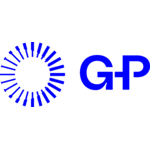Last weekend, as I was scrolling through Twitter, I stumbled upon a post about the Peelian principles by Sir Robert Peel. For the uninitiated, these principles summarize the ideas that define an ethical police force and are commonly known as policing by consent in countries like the UK, Canada, New Zealand, and Australia.
As I was reading through the principles and the ideas behind them, I was struck at the relevance they still hold today, over 200 years later, especially in the modern workplace.
Here are some of the core ideas behind the policies that I believe will resonate with HR teams:
1. The goal is to prevent crime and disorder, not catch criminals
In a world where people are an organization's greatest asset, HR executives need to be strategic about employee retention before their best employees end up working for their competition. In the words of the Dutch philosopher Erasmus, "prevention is better than cure."
One sure-shot way to avoid this? Investing in the right performance management systems and employee engagement software not only helps your business save thousands of dollars over the long term, but also ensures happy employees, high engagement rates, and low employee turnover.
2. Representing and understanding your people is one of the most effective ways of winning their approval
The closest thing to a 'silver bullet' that HR teams can possess is a clear understanding of their people. Identifying behavioral patterns, recognizing what makes them tick, their strengths, weaknesses, and skills, will help in improving your organizational decision-making and win the approval of your employees.
Again, that's where HR Tech plays an invaluable role. For instance, during the early days of the pandemic, a simple tool like a 5-minute online survey significantly helped HR Leaders create and implement processes to make a smooth transition to remote and hybrid working.
3. The test of police efficiency is the absence of crime and disorder, not the visible evidence of police action in dealing with it
A well-designed HR system maintains seamless operations in the organization, while being aligned to the needs of its employees, thus leading to minimal intervention and no 'fires' to put out.
While HR does deal with "policing" the organization to some extent, I believe the Peelian principles are mostly relevant as a framework for doing a tough job well.



























